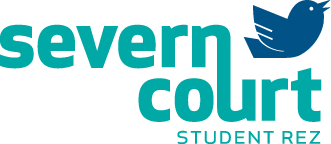Taking and making good notes is important for students and job seekers. When recording tasks or learning new topics, writing helps you focus and remember details. Good note-taking skills let you sort and use information better, whether for work projects or study. These skills help you feel more confident during lectures or when working on assignments.
Let’s explore ten practical tips to help you enhance your note-taking abilities.
Prepare before the class
Begin your note-taking process before the session starts. Skim through relevant chapters or slides beforehand. Jot down keywords or a simple list of topics you expect to cover. This helps you listen actively and focus on key ideas.
Choose important content only
Avoid writing down everything you hear. Instead, note ideas your instructor repeats or highlights as important. Also, listen for extra information that isn’t in textbooks. This helps your notes focus on material likely to matter later.
Use phrases, not full sentences
Don’t feel you must write everything word for word. Write short phrases in your own words that you understand. A page of single words isn’t helpful later, so mix keywords with short phrases to make studying easier.
Develop your own shorthand
Create symbols or abbreviations you use regularly, like → for change or “ex” for example. Keep them consistent across sessions so you remember them. A list of your common symbols can help when you revise.
Pick a note-taking method that suits you
Try different styles and see what works best:
- Outlining: Use headings, subheadings, and bullet points in a hierarchy. Best for linear content.
- Charting: Use columns to compare ideas or topics; good for subjects with multiple categories.
- Mapping: Draw a mind map or spider diagram to connect ideas visually. Helps if you’re a visual learner.
- Cornell method: Divide the page into notes in a main area, cues or questions on the left, and a summary at the bottom. Great for review later.
Organize your notes
Keep each set neat using titles, dates, headings, and bullet points. Use clean formatting and leave space between sections. This will make reviewing easier and faster.
Use colour or formatting
Colour helps you find key terms faster. You might highlight definitions or exam topics in one colour and compare ideas with another. But don’t slow your note-taking in lectures; that step can wait until later.
Highlight exam-related info
Use one colour or symbol for anything linked to tests or assignments. Mark up example questions, tips, or key ideas your instructor emphasizes. This makes revision less stressful later.
Try note-taking tools
Some digital tools can make note-taking easier. Consider apps like Notion, OneNote, Google Keep, Bear, or Evernote. These support organizations, search and sync across devices. Many students find them useful for both typing notes and saving quick reminders.
Review notes soon after class
Within 24 hours, go through your notes. Review, correct errors, and add missing details while the lesson is fresh. This act helps memory and keeps your notes accurate. Compare with classmates, if possible, to fill gaps and refine your summary.
Additional suggestions from dedicated students:
- Writing or typing notes helps your brain engage and remember better. Don’t assume you’ll recall details later, even if they seem simple at the time.
- Clear and concise notes are easier to review. Leave blank space to add details later. Mark the core ideas and organize well from the start.
- Summarize each lecture into a 1–2 page sheet soon after to improve clarity. This also makes exam preparation easier.
Conclusion
Strong note-taking starts before class and continues through review. Use short phrases, your shorthand, and a method like Cornell or mind mapping that fits your style. Good note-taking isn’t just for student life; it also boosts your performance at work. Recording clear meeting minutes, summarizing client interactions, or saving project details accurately helps you track progress and stay organized. When applying for jobs, you can mention that you use structured note-taking methods, which shows attention to detail, clear communication, and professionalism.At Severn Court Student Residence, we offer fully furnished student housing in Peterborough. It’s about building a community where you feel supported and connected. Severn Court Student Residence promotes a friendly and inclusive atmosphere where residents can create lasting friendships. With social spaces designed to foster connection and opportunities to engage with your peers, we encourage a living experience that supports both personal growth and academic success.






